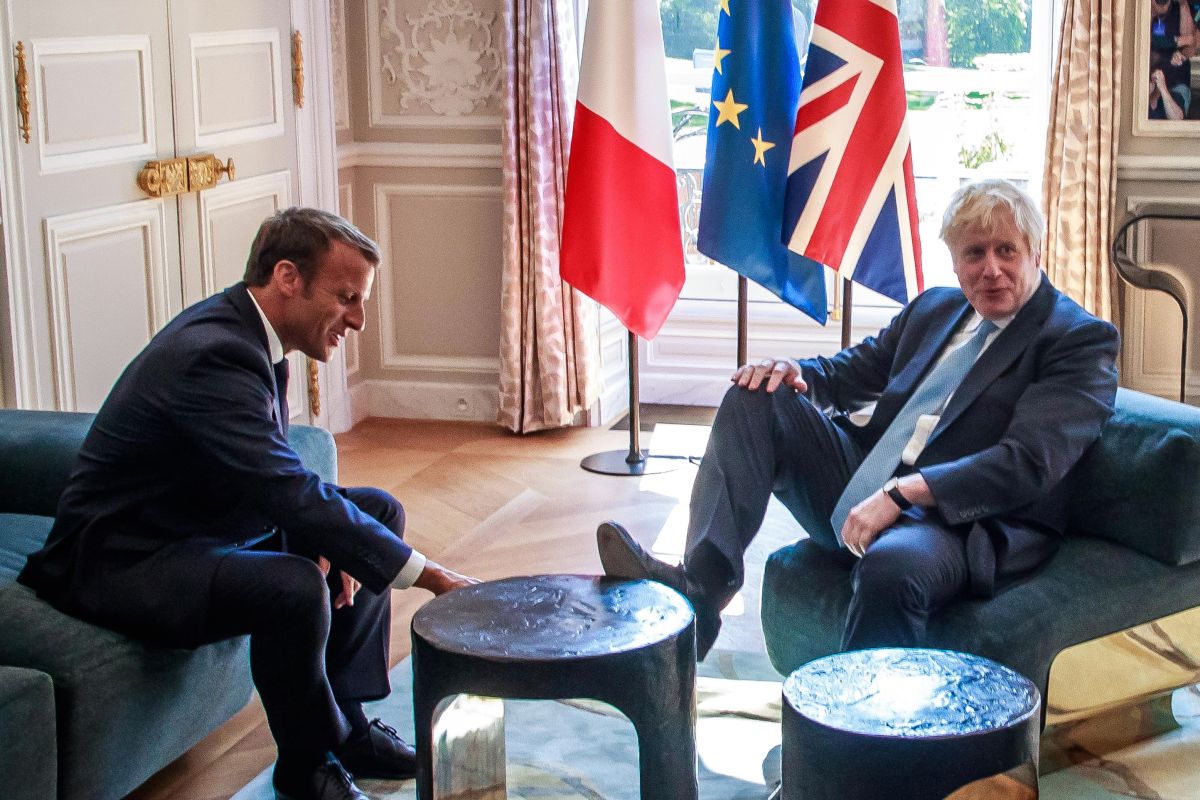EU leaders agree for new sanctions on Iran
European Union leaders agreed late on Wednesday on new sanctions targeting Iran for the direct attack on Israel.
It would be pertinent to recall that Mrs May’s hope that ways could be found, amid mutual trust of reconciling these objectives over time, had led Britain to propose such a backstop, to which the EU agreed.

Britain's Prime Minister Boris Johnson (R) places his foot on the table during a meeting with French President Emmanuel Macron (L) at the Elysee Palace in Paris, France, on August 22, 2019. (File Photo: Christophe PETIT TESSON / POOL / AFP)
By despatching a letter to the European Union this week, the Prime Minister of the United Kingdom has recognised the reality that the relationship with EU does matter and profoundly so, whatever the eventual formula for the exit. So too did his predecessor, Theresa May.
Small wonder the chief cause of surprise in London is that Boris Johnson ~ cast in the mould of Donald Trump ~ wrote it at all. For nearly a month, Mr Johnson’s government has also articulated the proposal that a no-deal Brexit is an acceptable prospect for Britain. So when the new Prime Minister starts his letter by saying that he very much hopes the UK will be leaving with a deal, it might be reasonable to hope that he may actually mean it.
Further comment must await the evolution of developments ~ even a possible election ~ between now and the deadline of 31 October. At the core of the letter to Donald Tusk is the statement that the Irish backstop is not viable. The letter refers to the backstop as undemocratic, a brake on UK’s trade and regulatory policies and a threat to the Northern Ireland peace process. In most respects, this scarcely reflects the correct position. There is little or no trace of a serious diplomatic approach to solving an impasse that threatens Britain’s economic stability, trade, jobs, constitutional cohesion and security.
Advertisement
The issue is more pregnant than a one-way ticket out of the European Union. “Backstop” is a Customs and regulatory arrangement of last resort to address the unique situation in Ireland, for which Britain has shared legal and moral responsibility. It is designed to maintain a permanently open and seamless border in Ireland and will only apply if the UK and the EU cannot agree, by the end of the transition period, to a deal maintaining such a border. That is made more difficult by the tension over the government’s insistence on leaving the Customs union and the single market, and the UK’s obligations under the “Good Friday agreement” which ensures the “demilitarisation” of the border as part of the peace process.
It would be pertinent to recall that Mrs May’s hope that ways could be found, amid mutual trust of reconciling these objectives over time, had led Britain to propose such a backstop, to which the EU agreed. Whereas it should have been supported, it split the Conservative party and triggered the overthrow of Mrs May by Mr Johnson. In his letter, Mr Johnson offers no alternatives. Any possibility of progress towards a deal now rests on meetings this week at the G7 summit in Biarritz. Angela Merkel seemed to imply on Tuesday that she, at least, is serious about trying to reconcile Brexit with the Irish peace process. Not so Mr Johnson, however; he must of necessity abjure any reckless move.
Advertisement